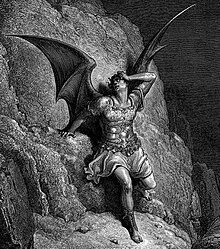
"You see Cormier engaging in an examination of people."
Spoilers ahead for Robert Cormier's The Chocolate War.
After the monstrosity that was Go Ask Alice (a personal opinion, though one held by most of the class), we moved on to the classic The Chocolate War.
The Chocolate War came out in the 1970s and was hailed as one of the most innovative books of its time.
We spent a good deal of time discussing the third person omniscient narrator (or, "the all-knowing narrator"). It doesn't function the same way that the first person does -- it comes across as less obsessed and self-absorbed and allows a disconnect with the shifts between characters.
The novel itself is "a little more adult than young" and counteracts that typical teen problems with darker overtones. (For instance, in the opening scene, it's not just trying out for the football team -- it's war imagery.) It's not about overcoming, it's about enduring. The narrative voice doesn't passes judgement, it just presents the story (and, perhaps, respects their audience?).
And then we flipped to the connection between Archie and John Milton's Paradise Lost.

Lucifer in Paradise Lost.
Paradise Lost follows the biblical story of the fall of man. (If you don't know it, I applaud you for living under a rock.) Milton fleshed out Satan as a complex character who wages war against God, loses and then plans to infiltrate Earth. He sees God as a tyrant and the fight as a matter of justice and freedom. (A Byronic hero, perhaps?)
There are plenty of parallels between dear Satan and Archie, including:
- the need to wage war (TCW: page 71)
- the lack of melodrama, and the presence of psychodrama (TCW: page 132)
- treated as some kind of machine (TCW: page 33)
- align with evil, victim v. victimizing (TCW: page 106)
- justified hate (TCW: page 144)
We also talked about the parallel's between Satan's domain, Pandemonium, and the "pandemonium" that Archie causes within the school.
Next week, we switch briefly to some young adult poetry -- yes, that's a thing! -- as well as a lesson on close reading.
Question for the comments:
For those who read the book, why did Jerry continue to refuse the chocolates? Was it premeditated against Leon, or just something he decided to do offhand?
Did you miss a class?:
(Syllabus)
(Day 1)
(Day 2)
(Day 3)
(Day 4)
(Day 5)
(Day 6)
(Day 7)
(Day 8)
(Day 9)